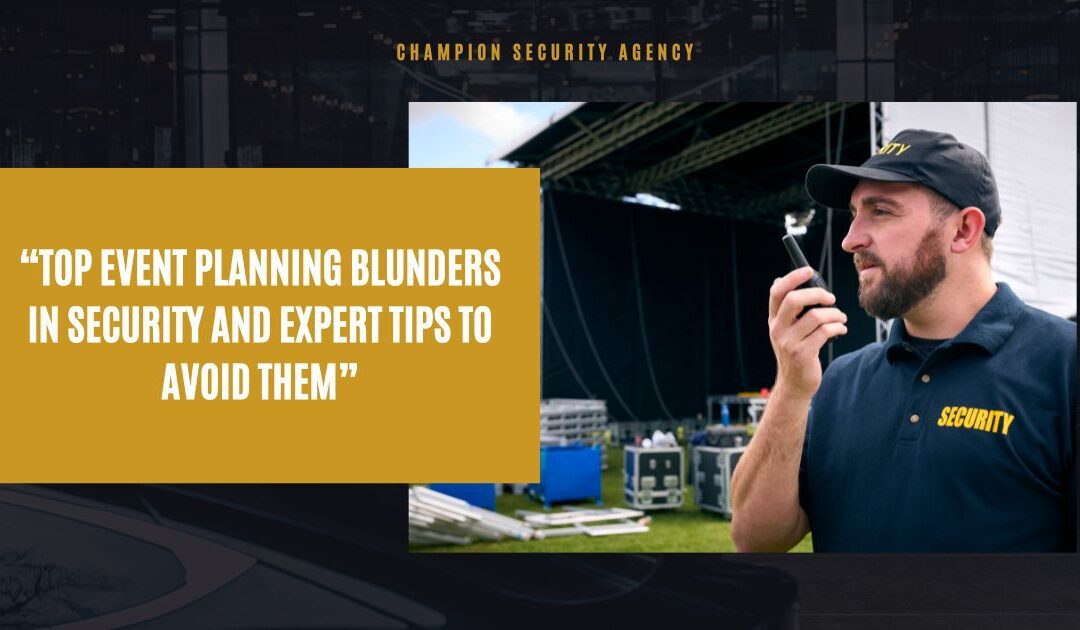That nagging thought always exists when you’re planning an event—you hope that something goes wrong. And, honestly, we usually forget the most about security. Does it matter if the chairs are perfectly in line, and the food comes out hot and on time? No, not if the attendees don’t feel safe. Before I’ve trusted things would go smoothly, only one security misstep can turn a memorable event to a mess. Lesson learned, the hard way.
What is the “It Won’t Happen to Me” Mindset
Yeah, we all think that our event is too small or too friendly or that security isn’t a concern at that kind of event. More than once, I’ve guilty of that mindset. The hard truth is that trouble doesn’t give a shit how big your event is. That’s the hard truth. How is it to not lock your front door, live in a ‘nice neighborhood’ basically. On the surface, that might seem normal until the one time it’s not. Even if you are going for a “vibe”, every potential eventuality can and will pop up — from lost property, to gatecrashers, to more serious problems.
Tip to Avoid: It’s always good to have security in your budget, even if your event appears it can be low risk. I promise you: a little bit of planning goes a long way. When it’s too late, you don’t want to wish you had done more.
Don’t Vet Your Security Team
We all just want to check it off the ‘hire security’ box. But let me make it clear, getting a wrong team is like buying a car without brakes. At first it may look fine but, it’s a disaster waiting to happen. At events, I’ve been to places where the security were so untrained, so unprepared, that they actually made things worse. It may sound harsh, but you’re better off with no security than bad security.
Tip to Avoid: Look for specific people who will be trained for the type of event you have. Ask questions, do your background checks, not afraid to ask for proof of experience. It’s *your* event, why trust anyone else to keep it safe?
Overlooking Cybersecurity
When I started organizing events, cybersecurity wasn’t on my radar. I thought security was bouncers at the door. Boy, was I wrong. Now with all the tech we use, all of our registration systems being digital, all our mobile payment apps there is a lot that can go wrong digitally. One time we didn’t secure the Wi-Fi network was had someone hack into our payment system and I’ll never forget that. Talk about a nightmare.
Tip to Avoid: If your event involves personal data or online transactions, call in somebody to do cybersecurity. Or, just like you wouldn’t leave the backstage area open to anyone, don’t leave your digital doors open either.
Skimming on Communication Systems
This is an incredibly common mistake, and trust me, you will end up regretting this. You absolutely can’t go without solid communication with your team and security personnel. We didn’t give half the team radios at an event and I was on the receiving end of this. People in the middle of crisis were trying to work out how they were going to get in touch with security. That could have been avoided with just a little foresight. It was a disaster.
Tip to Avoid: Have everyone have at least a reliable means of communication at the ready (radio, group messaging apps, whatever works best for your event). Test everything *before the big day*. I assure you, you don’t want to be dealing with tech failure while things go wrong.
Crowd Control Plans Ignored
Have you been to an event where everyone is squashed in like so many sardines? Beyond that, bad crowd control can be downright dangerous. It’s uncomfortable, but it’s dangerous. I’ve experienced this with festivals, small local events, it just goes from chaotic to potentially harmful.
Tip to Avoid: That’s why you need to plan for crowd control like your event depends on it, because it does. Plan out your exit routes, control entry points and pay no attention to the power of barriers and clear signage. When things stay calm and organized, you’ll be thankful for it.
Others Do Not Prepare for Emergencies
Thinking about worst case scenarios isn’t something anybody likes to do, but they do happen when ignored. I’ve been to events where everything was screwed up–fire alarm or medical emergency–and it was painfully obvious there wasn’t a solid plan in place.
Tip to Avoid: You must have your emergency plan crystal clear. Tell your team, make sure they know the drill, the same goes for your attendees. I promise you: an emergency is *not* the time to be figuring things out as you go.
Final Thoughts
You can’t blame them, event planning has a million moving parts, and sometimes security gets forgotten. Having a proper security plan is not just a nice consideration, however: It’s essential. I’ve been part of enough events gone wrong to know that a bit of foresight can save you decades worth of headaches. Don’t do what I did, don’t just treat security as an afterthought, take it seriously from the start or you will regret it later.
Have you ever been at an event that it was obvious that security was an after thought? Isn’t it wild how the tiniest little slip up can snowball into the biggest of problems? Make sure that doesn’t happen for your event!
This one is a little more of my personal experiences all over the piece but maintaining the conversational, down to earth type of tone and all the SEO and readability science. Let me know if this hits home for you!

